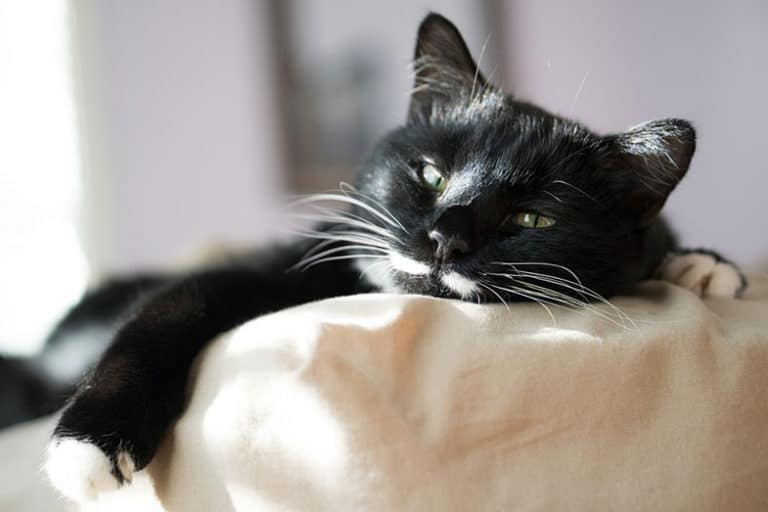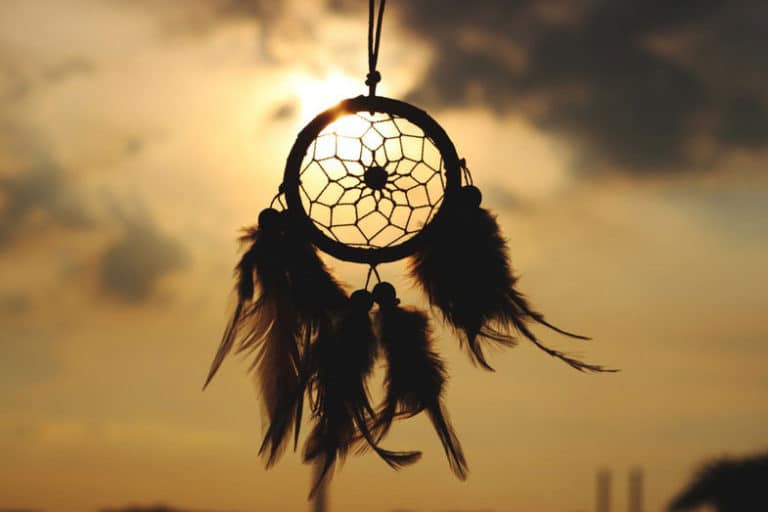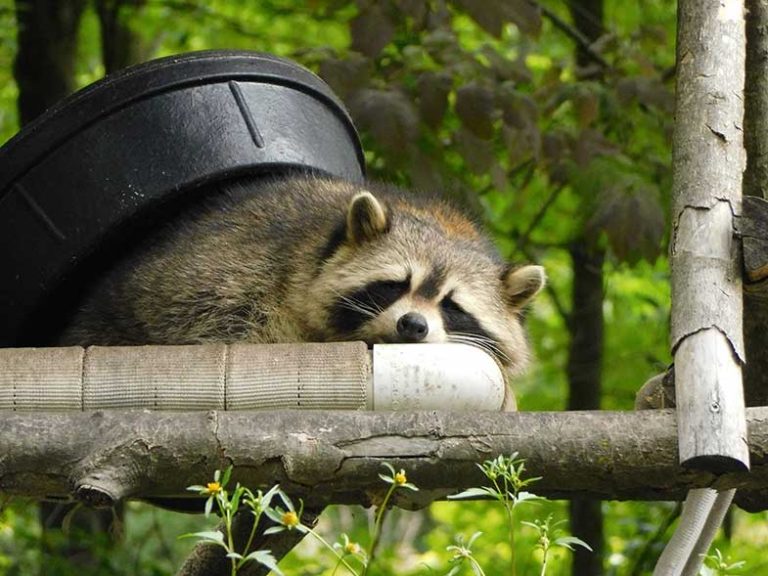Owl Hooting at Night Meaning and Significance
Disclosure: We may get commissions for purchases made through links in this post.
Have you ever laid in bed, ready to sleep, when suddenly you hear an owl hoot? You then began to wonder if it meant anything spiritual or symbolic. For many, an owl hooting at night can be quite spooky.
What does it mean to hear an owl hooting at night? The supernatural meaning of an owl hooting at night depends on your beliefs and superstitions. Folklore associated it with bad omens such as imminent death or bad weather. Today, however, we understand that owls hoot at night to communicate.
Since owls are most active at night, it is not uncommon to hear them hooting during this time. The owl hooting sound can be creepy, but before it affects your sleep, read on to learn more about the meaning of owls hooting at night and why.
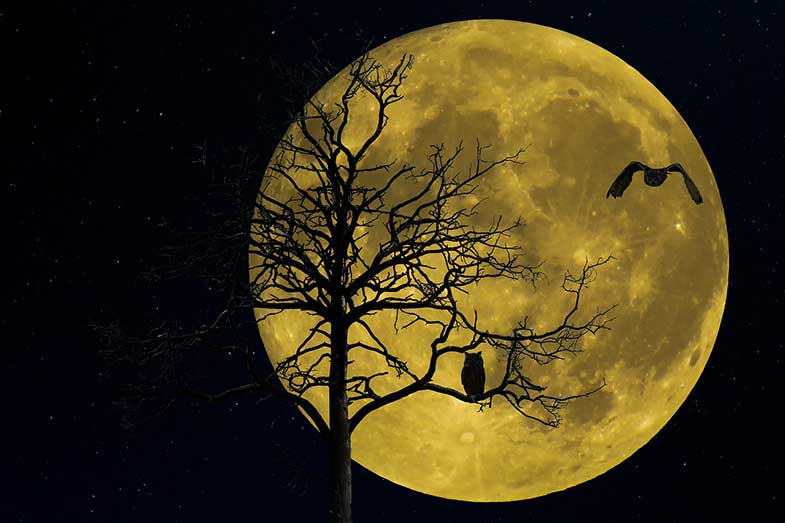
Owls Hooting at Night Significance
There is plenty of symbolism and superstition that surrounds the owl that hoots at night. Today, superstitions about owls have mostly become bedtime stories told to children.
An owl’s large eyes and eerie hoots make them fascinating creatures with mysterious abilities. Let’s explore how different cultures interpreted an owl hooting at night, and just in general.
Check out this video by Jordana Van who talks about owls as spirit guides, and what it means when you are seeing them everywhere.
Owl Hooting at Night Meaning
Native American
There are different beliefs with owls hooting in the Native American folklore. Tribes like Cherokee believed that owls were linked to death or witches. When they hear an owl hoot at night, it meant bad luck would come to them. In some Native American tribes, they also associate owls with ghosts or something from the supernatural. When an owl hoots, it is believed to be a warning to those who have broken the tribe’s rules.
Sometimes, owls are also used to warn children from going outside at night. If they don’t follow this rule, then they might be taken away by the owl. Other tribes believed that owls could communicate with spiritual healers, or the healers themselves transformed into an owl. On the other hand, others believed they were protectors of the tribe’s spirits.
Roman
When Romans hear an owl’s hoot, it means an inevitable death of someone, illnesses, or bad weather. It is said that many deaths of well-known Roman figures were predicted by the sound of an owl’s hoot. Prominent figures included Augustus Aurelius and Agrippa. Also, the death of Julius Caesar was predicted when a hooting owl perched on the roof. Another belief is that when you place the feathers at the bedside of a sleeping person, it will prompt them to reveal all of their secrets.
Greek
Unlike its Roman counterpart, to the Greeks, the significance of owls hooting at night is that they were symbols of good fortune. Since these birds were associated with the goddess of wisdom, Athena, they were welcomed. They were also symbols of victory and the protector of soldiers at war.
Arabia
In Arabia, owls embody evil spirits. These dark spirits take on the form of this bird and carry the children out into the night. Another Arabian belief is that when a person is wrongfully murdered, their spirit continuously weeps and wails until they get revenge. The death owl or al-sada would repeatedly fly over their grave and ceaselessly hoot until their death was avenged.
China
For Chinese, the hooting sound of the owl was a bad omen. In the Han Dynasty of China, you will see a lot of owls depicted on burial urns. They believe that when you hear an owl hoot near your house, it would mean that there would be death or illness in the household. It was also considered a warning for the house that they should start digging a grave.
India
In southern India, the number of hoots an owl makes at night represented different messages.
- One hoot meant death
- Two hoots meat a successful endeavor
- Three hoots meant a woman was to marry into the family
- Four suggested a disturbance
- Five consecutive hoots mean you were going to travel
- Six meant guests were coming to visit you
- Seven was a sign of psychological turmoil
- Eight hoots was a warning of sudden death
- Nine owl hoots meant good fortune
Why Do Owls Hoot at Night?
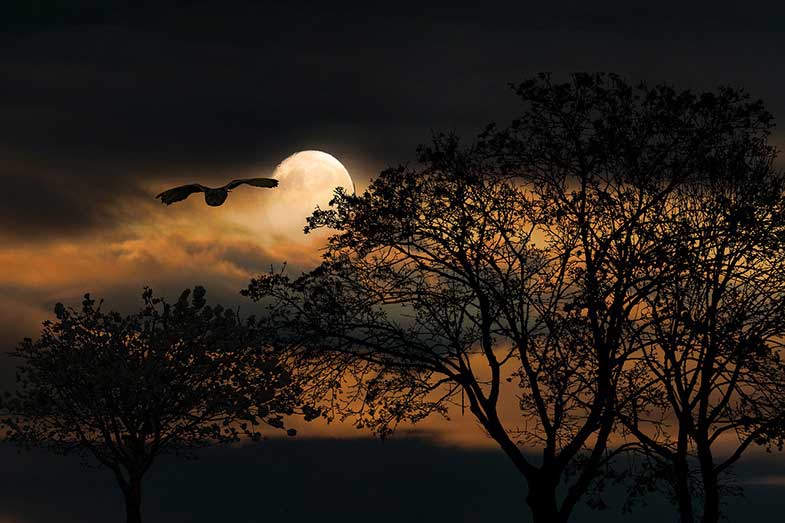
An owl will hoot at night for several reasons. It may be to exert dominance over territory or to claim a new area before searching for food. An owl will hoot to determine if there are other owls in the area and to make themselves known. During the mating season, they will hoot to attract potential mates.
- Defense Call
If an owl sees a threat, it will make a low pitched hoot that almost sounds like a dog bark. They use this hoot to scare off unwanted guests and don’t stop until the threat leaves. Sometimes, when danger approaches their nest, you may also hear a snarl accompanied by a clicking sound.
An owl also hoots when it faces a predator. It creates a loud shrieking sound until the predator leaves. This often happens when there are overlapping owl territories. - Territorial Call
You might have heard a territorial hoot from an owl, which is one of the most common hoots. An owl does not make its own nest. Instead, it uses an abandoned nest made by a different bird to claim it as their home. This hoot tells other owls (or animals) that this particular area has been established as their territory. The sound of the hoot, however, varies per species. - Mating Call
Other than keeping unwanted visitors from entering their territory, owls also hoot to attract potential mates. Male owls typically make deep, loud hoots in varying tones at dusk, and they wait until a female owl returns the call with the same hoot (just a bit higher pitched).
They do this back and forth (like a duet) a couple of times. There are even some instances when they create a shriek-like sound to communicate with potential mates.
Type of Owl Hooting at Night
Now that you know the types of calls an owl makes, perhaps you can now identify what kind of owl visits you at night. There are typically five types of owls that can be found all across the US and Canada.
Barn Owl
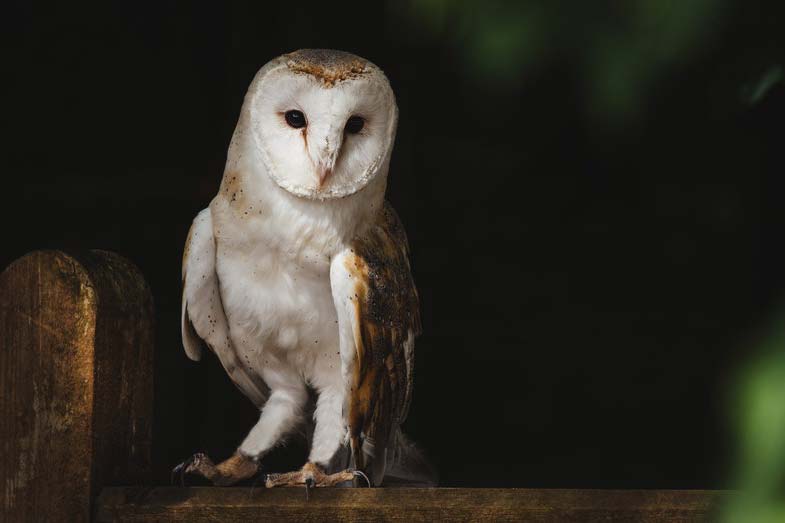
The barn owl has a unique way of hooting than any of its relatives. Their hoots tend to sound more like a scream rather than a hoot. The shriek lasts about two seconds. They can also produce a hiss-like sound if they feel threatened.
Great Horned Owl
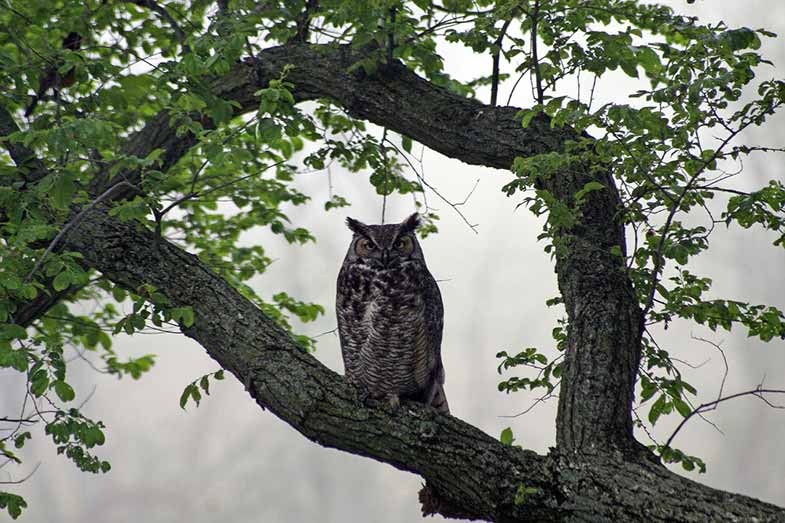
Great Horned Owls produce one of the deepest baritone hoots and are considered as the crooner of all owls. They start hooting at night. Much like a muted flugelhorn, these owls sing in duets with females hooting first with the males following closely. These owls are mostly found in Canada and Alaska.
Barred Owl
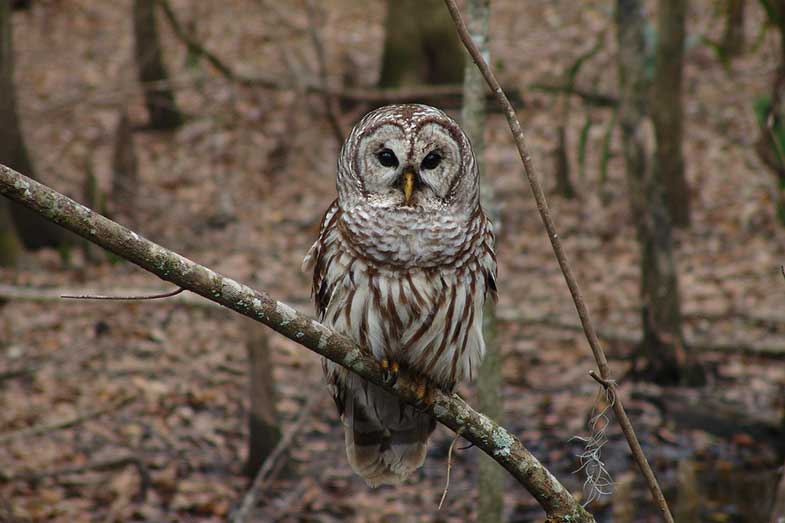
Characterized by a rich baritone sound, you can identify a barred owl hoot by the tones it produces. Usually, they produce short bursts with the last hoot as the longest. It often sounds like this phrase, “Who cooks for you?” done on repeat. You can easily spot them along the eastern part of the Rocky Mountain Range and Canada.
Burrowing Owl
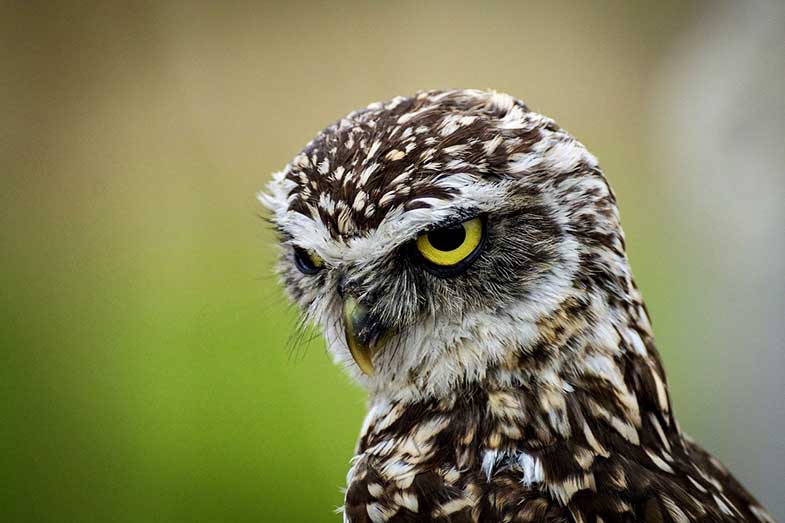
Found mostly along the border of the United States and Mexico, burrowing owls produce a coo-coo like hoot with the last part a bit longer along with a bit of wheeze. These owls are active both during the day and at night.
Eastern Screech Owl
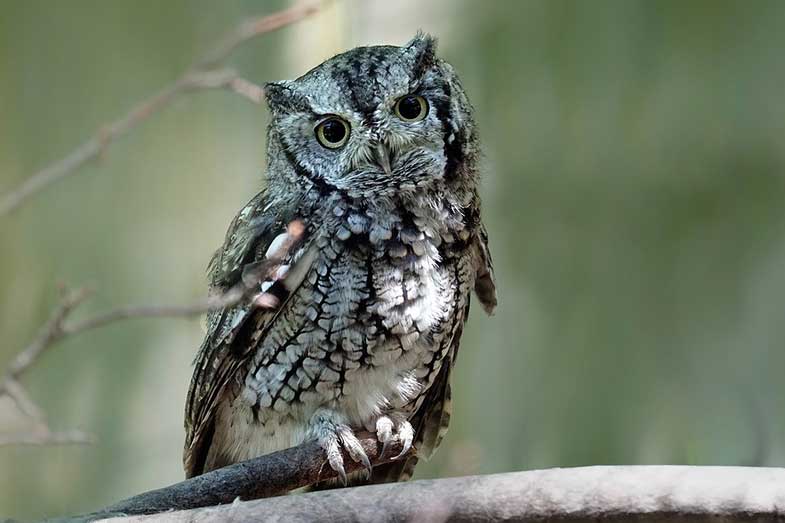
Also called Strigidae, these owls are most active during the night. Their hoots sound like a high-pitched horse’s neigh. Their particular hoot is more like a trill that is whiny and has a bit of tremolo that can last as long as 3 to 6 seconds.
If the whiny hoot lasts less than that, it means it is trying to defend or scare off any unwanted guests from its territory. They commonly live in the suburbs, woods, and even in the parks. You might also catch a short glimpse of this bird when you look out your window at night.
Conclusion – Owls Hooting at Night Significance
So the next time you lay down and hear an owl hooting at night, remember that it may be either defending its territory, looking for food, or simply hanging around. Whether or not you believe in superstitions, these nocturnal birds of prey produce one of nature’s most beautifully haunting sounds.

